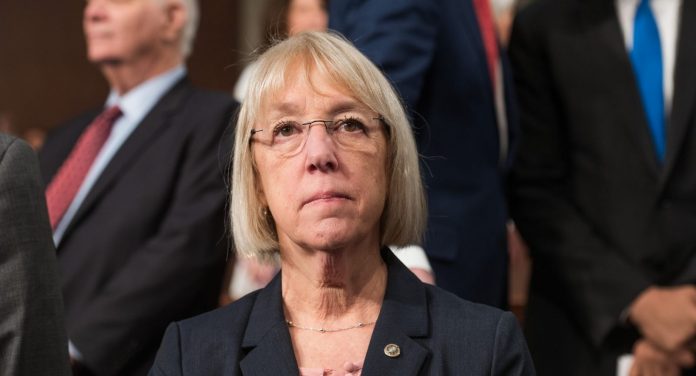
Dive Brief:
- Democratic Sens.Patty Murray (Washington), Sherrod Brown (Ohio) and Ben Cardin (Maryland) introduced a bill Thursday to offer payroll tax cuts to those restaurants that applied for but did not receive Restaurant Revitalization Fund grants, according to a press release from Murray’s office.
- The payroll tax credit would allow eligible restaurants to receive a refund of up to $25,000 per quarter in 2023. Employers with 10 or fewer employees in Q3 2022 are limited to total of $25,000 for all four quarters. The cap is reduced by $2,500 for each staff member over 10.
- In an Instagram post published Thursday afternoon, the Independent Restaurant Coalition celebrated the introduction of the bill, calling it “a pivotal moment for the restaurant and bar industry.”
Dive Insight:
Murray’s press release indicated that some in the Democratic Party feel the fight for an RRF refill is not over, despite that bill’s defeat in the Senate earlier this year.
“[The] Restaurant Revitalization Fund left too many behind. I believe we need to replenish the Fund and will keep pressing to do so. Until that happens, bills like the Restaurant Revitalization Tax Credit Act will help keep restaurants afloat,” Murray said in a statement.
Murray’s office estimated about 175,000 restaurants could apply for some sort of refund under the proposed tax credit scheme. Cardin, in the press release, said the tax credit was necessary to help restaurant operators repay debt, offset rising labor costs and manage supply challenges.
The IRC said it was reaching out to every member of Congress to seek their support for the tax credit bill. The IRC also highlighted the shortfall between the RRF’s first funds and the amount of sales wiped out by the COVID-19 pandemic.
“[Restaurants] lost over $280 billion in the first year of the pandemic alone and received a mere $28.6 billion in dedicated RRF relief,” the IRC said on its Instagram page.
According to the text of the bill, restaurants are eligible if they were open before the COVID-19 pandemic, applied for but did not receive RRF money, paid payroll taxes for pay periods covering at least two quarters of 2021, and pass a test of their gross receipts.
Restaurants that reported a drop in gross receipts of over 50% in either 2020 or 2021 compared to 2019 are eligible. Restaurants that saw an average drop in gross receipts of over 30% compared to 2019 during 2020 and 2021 also are eligible.
Published By: RestaurantDive



